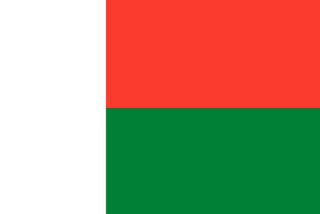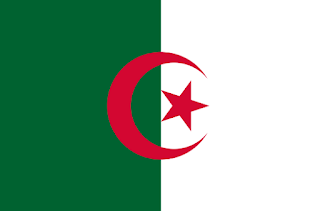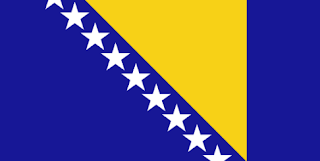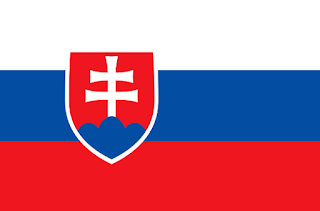FACTS ABOUT MADAGASCAR
AMAZING FACTS ABOUT MADAGASCAR
1.
Antananarivo is the capital city of Madagascar.
2.
The total population of Madagascar is 24,430,325.
3.
The natives of Madagascar are called Madagascans.
4.
The Malagasy Ariary (MGA) is official
currency of Madagascar.
5.
The bard of Malagasy literature,
Jean-Joseph Rabearivelo, is also Africa’s first modern poet. Born in a poor
family, he grew up to master African and French surreal poetry. He was declared
the National Poet of Madagascar in 1960.
6.
Hainteny, translated as “knowledge of
words,” is a Malagasy oral tradition, and is quite different from anything you
have heard before. It heavily uses metaphors, folktales, fables, riddles and
historical poems to convey simple messages.
7.
Kabary means public discourse, but
through indirect speech. It is actually a social game, where two “players”
debate with each other but can never directly counter one another. For example,
to counter someone’s illogical points, one might say: The dog’s bark: it isn’t
might, but fright.
8.
Both men and women wear the same
clothing in Madagascar, lamba. There are lambas for marriages, lambas for work,
lambas for elders, lambas for children and even the dead are wrapped in a
special kind of lamba before burial. Madagascar is a great place to open a
lamba shop, if you ask me.
9.
Madagascar has made an understanding
with its ghosts. In popular Malagasy belief, the dead look out after the
living, and the living look out for the dead.
10.
Now, “looking out for the dead” in
Madagascar is both scary and funny the same time, though a bit complicated. In
a ceremony called Famadihana, the dead remains of an ancestor are first
literally dug out and placed on the field. Then, the family members dance
around the skeleton and engage in funny social debates, or “Kabari.” The dead
ancestor then goes back inside the earth again, happy and wrapped in a new
lamba.
11.
The lemur may look like a monkey
tripping on cocaine, but it is actually a sacred animal in Madagascar, deeply
revered and worshipped by the Malagasy people. To them, lemurs carry the souls
of their ancestors
12.
A special species of Baobab, known as
the Mother of the forest, Adansonia grandidieri, is only found in Madagascar.
The striking landscape of The Avenue of the Baobabs has become a cultural identity
of not only Madagascar, but also of Africa.
13.
Madagascar has its own brand of fight
clubs. Moraingy is a popular sport in the coastal regions, consisting of
hand-to-hand combat without any weapons.
14.
Music is not viewed as a luxury, but a
sacred part of the Malagasy daily life. Music is believed to be the connection
to an ancestor’s soul, and sometimes when the party gets hotter, rum is poured into
the instruments as a show of respect for the dead.
15.
The snakes are not the only ones that
hiss in Madagascar. The hissing cockroach, which happens to be Hollywood’s
cliché of scary insects, is found only in Madagascar. Here are two facts about
Madagascar hissing cockroaches: first, they love to live in rotten logs.
Second, they are actually harmless vegans that only come out of their rotten
logs at night, for the fear of being eaten.
16.
Madagascar has no tigers, zebras,
giraffes or hippopotamuses, as portrayed in the famous Hollywood movie,
Madagascar. But the film rightly showed the lemur as King Julien.
17.
The uniqueness of Madagascar’s
biodiversity rightly gives it a name – The Eighth Continent of the World.
18.
This tropical paradise is the world’s
second-largest producer of vanilla, after Indonesia. Ironically, vanilla
originated in Mexico.
19.
Deep in the jungles of Madagascar,
everything is not as it seems. The flat-tailed gecko, native to Madagascar, is
a master of camouflage, and has a special fashion sense, blending in with tree
barks and dry leaves.
20.
The Baobab tree is a species unique to
Madagascar. It has a bloated trunk, which is used to store gallons of distilled
water.
21.
Madagascar is a paradise for chameleons.
These reptiles are so lazy that they evolved a way to look backwards without
having to turn their heads; they can turn back their eyes! They don’t even care
to run away from a predator, and can simply change their body color and merge
with the surroundings.
22.
90% of the world’s lemur species live
happily in Madagascar. Everywhere else in the world, the lemurs evolved into
monkeys, except in this lemur paradise.
23.
The silk of the Darwin’s bark spider,
endemic to this tropical island, produces the world’s strongest silk, which is
ten times stronger than Kevlar, a synthetic fiber of high tensile strength. It
also makes the world’s creepiest and biggest reported orb nests.
24.
Tenrecs were the first mammals to
inhabit Madagascar. They look like hedgehogs and curl up into a spiky ball when
threatened.
25.
Madagascar has an entire forest made of
stones. Tsingy – Madagascar’s Stone Forest, has big, tall stones naturally
lined up along with trees.
26.
Racially speaking, Madagascar is truly
unique. The Malagasy people are descendants of African and Asian people, who
migrated from Borneo, Sumatra, Java and Indonesia.
27.
Madagascar had two breakups during its
early days. After a break from the African continent around 160 million years
ago, it started to drift toward the east along with its new partner – The
Indian subcontinent. But then, around 88 million years ago, India broke off
with Madagascar, too, and it became an island near Africa.
28.
But that was a blessing in disguise for
Madagascar. Those breakups isolated Madagascar so much that it developed its
own unique ecosystem. 90% of the species in Madagascar can’t be found anywhere
else on earth.
29.
“Govern a country as you would roast a
crocodile on a spit” – A proverb from Malagasy literature. It leaves little
room to say anything else.
30.
The early Malagasy people irrigated
their crops “like a boss.” The technique they used was called “slash and burn,”
and it would involve cutting down a forest, and then burning the remains. After
cultivating that land for a while, they got bored and moved on to the next
rainforest for some more slashing and burning.
31.
Though rich in biodiversity, Madagascar
is totally cashless. While Africa is the poorest continent of the World,
Madagascar is one of the poorest nations of Africa. 90% of the population
survives on less than $2 a day.
32.
Poverty doesn’t dissuade the people of
Madagascar from building expensive burial tombs for their dead, or burying the
dead with jewels and precious metals. In fact, many families spend more on
their dead than on themselves.
33.
The “Aye Aye” is not a pirate’s call but
a rodent of Madagascar, which looks a drug addict running away from rehab.
Incidentally, this little animal has an unusually large middle finger.
34.
Some 100-odd Zafimaniry villages of the
tropical rainforests in Madagascar produce beautiful crafts from timber. It has
been recognized internationally with UNESCO placing it on its list of
Intangible Cultural Heritage.
35.
The natural beauty of Madagascar earned
it another prestigious distinction from the UN. The Rainforests of the
Atsinanana on the eastern coast were declared a World Heritage Site in 2007.
36.
Madagascar has a healthy share of exotic
fruits in its basket. Fruits like jackfruit, longan, avocado, custard apple,
breadfruit, and baobab all grow on this tiny island tropical island
37.
Though the size of Madagascar is almost
twice that of the UK, Madagascar has just 1% of the total paved road length of
the UK.
38.
The people of Madagascar relish rice
like no one else. The verb for eating a meal is “mihinam-bary,” which literally
translates to “eat rice.”
39.
Ranovola is served as a tea in
Madagascar, but is far from one. Its preparation goes something like this: burn
rice in a pan, pour water, strain and enjoy your morning tea.
40.
Madagascar Exports:
coffee, vanilla, shellfish, sugar, cotton cloth, clothing, chromite and
petroleum products.
41.
Madagascar Imports:
capital goods, petroleum, consumer goods and food.
42.
The internet country code for Madagascar
is .mg.




Comments
Post a Comment